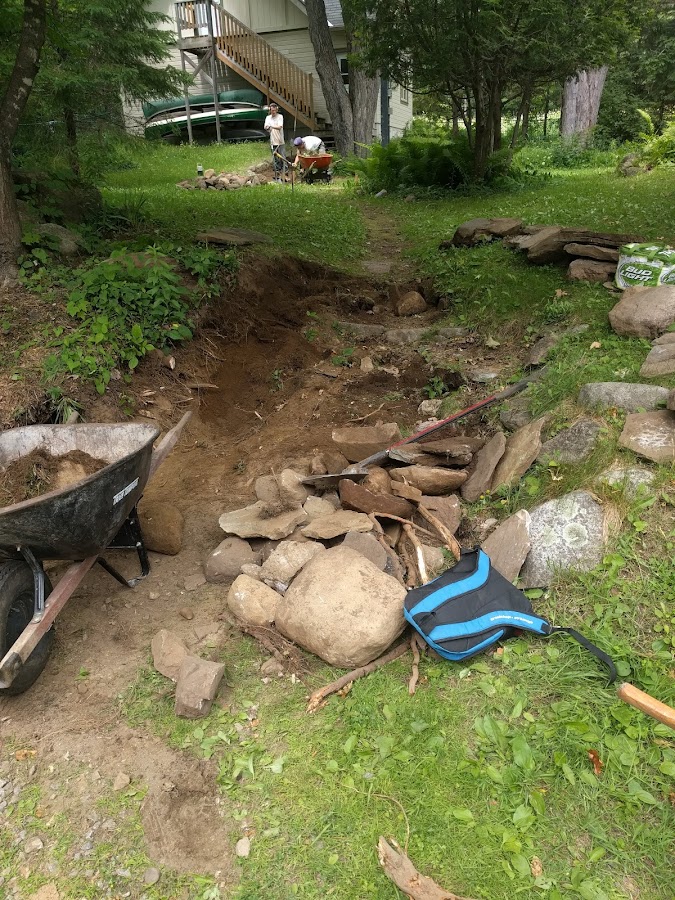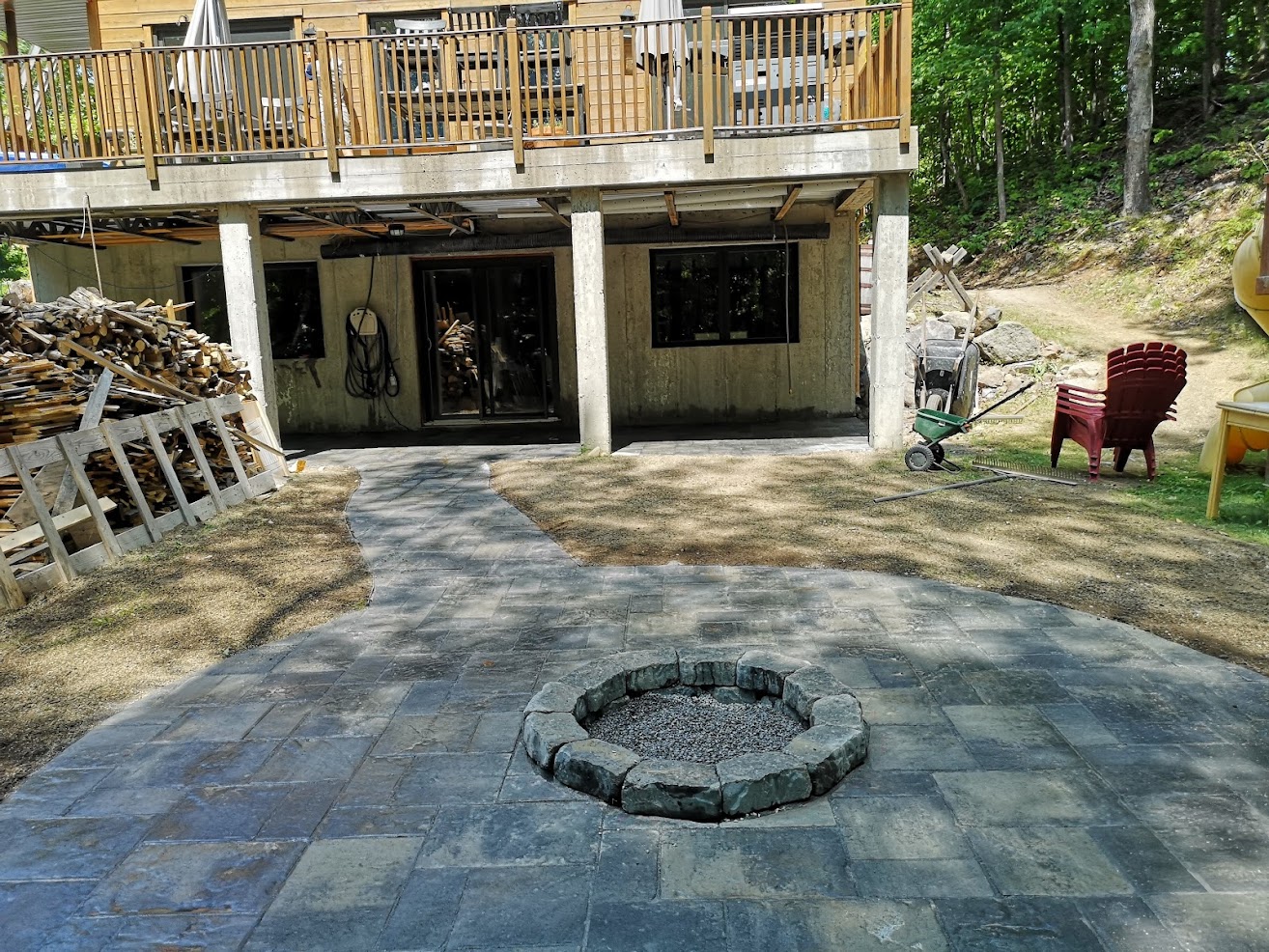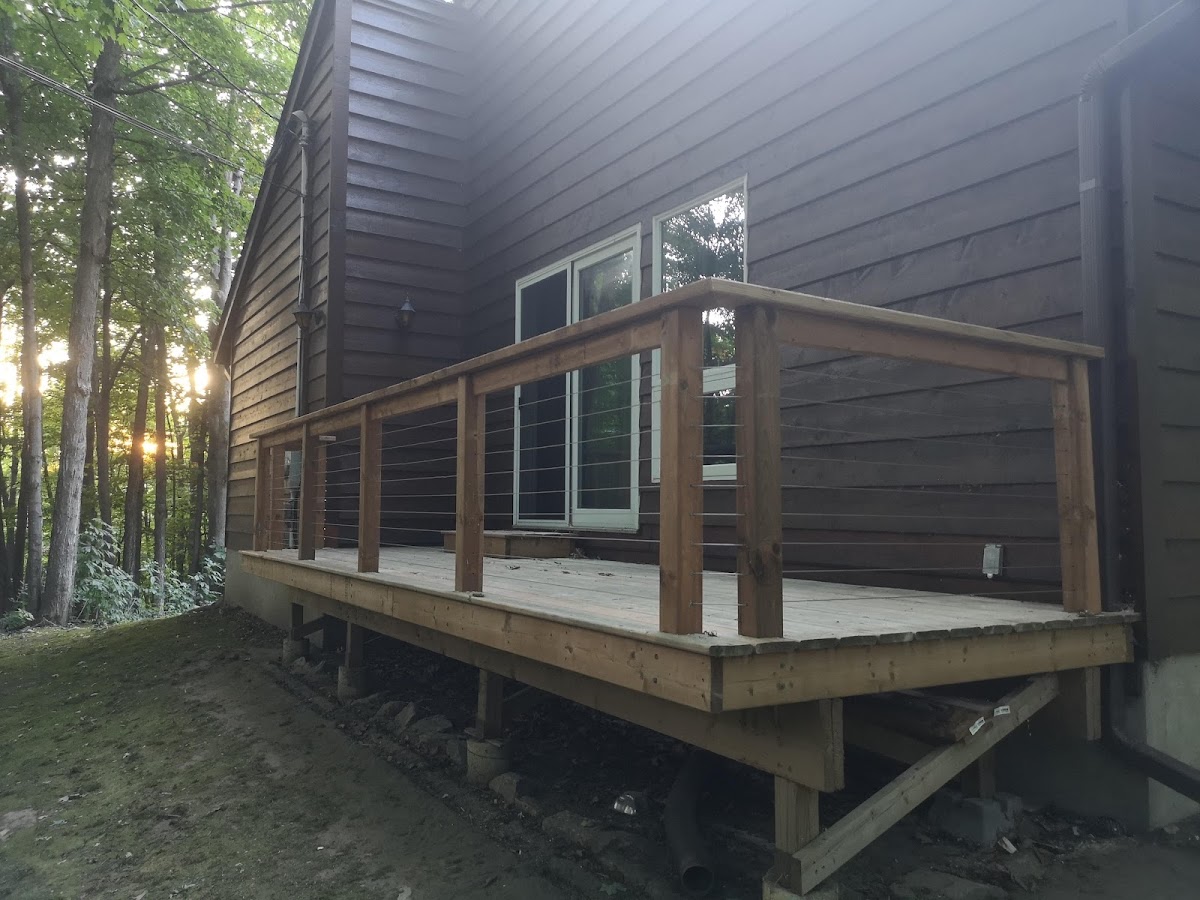
Entrepreneurship 101: Starting and Running a Landscaping Business
Summers 2017 to 2019


Deck After

Steps and Wall Before

Steps and Wall After

Flagstone Entryway and Retaining Wall Built

Firepit and Granite Patio Laid

Deck Wire Railing Built

Driftwood Garden Box Built and Planted

Garden Box Built and Planted

Flagstone Patio Laid
Images of some of our team's favourite projects.
Since I was a kid, I've always wanted to start a business. In 2017, after working for a small landscaping company in a neighbouring city (Ottawa) I decided to set off in my own town (Chelsea, QC) as there were few landscapers serving the area. I registered the business under the name Chelsea Property Services, bought a truck and equipment and hired one of my best friends John. I put up some ads in the local Facebook group, in the local paper and did some door-to-door marketing, with the expectation of getting about 20 hours worth of work a week for the two of us. By completing our first few jobs to a very high quality and with great customer relations, by the end of May word of mouth had us booked up full-time until the end of the summer.
Given how quickly we booked up the summer before, in 2018 I hired 5 full-time and 3 part-time employees who were also close friends. With more employees came the ability to take on more jobs and create more revenue, and with more experience came the ability to take on more demanding jobs.
By the end of 2019, we had completed 164 jobs and served over 100 separate clients and made $90k in revenue that year. I was able to fully finance my first two years of university and provide employment to 8 of my close friends while having a great time together. Before moving to BC for school, I sold the name and goodwill of the business, which still runs today.
Highlights
- Designed & built over 20 decks, patios, sheds & retaining walls, with our biggest project valued at $20k.
- Grew revenue from $20k to $90k per season by building a strong local reputation of delivering quality work at reasonable prices.
- Maintained a 5-star review rating on Facebook and Google.
- Issued over 200 detailed quotes & formed close relationships with suppliers.
- Maintained a perfect safety record by implementing a strong orientation & training session for all new employees.
- Sold the name & goodwill of the business, which still runs today.
Lessons I Learned
- Scaling up is hard: In 2018 and 2019, on any given day there were up to 8 people working on 4 projects at once. Although this allowed us to complete more jobs, I didn’t set the team up perfectly to operate at this size and I was stretched across many customers and jobs. Some mistakes happened through lack of communication, notably mowing the wrong lawn, finishing a patio unevenly and using the wrong shade of paint on a deck. Looking back, it would have been more efficient to have a smaller crew completing fewer, more profitable jobs, or hire more management help.
- Empathy is essential when dealing with customer issues: When mistakes did happen, jobs went overbudget or in the rare case that customers were unsatisfied with the job done, empathetic customer relations and a commitment to fixing any issues helped us maintain a perfect review rating. In one particular case, am employee had sprayed some driveway sealant on a customer’s stone wall without noticing. The customer called me extremely angry, threatening to sue. After acknowledging our mistake and their feelings, I convinced the customer to let us fix the issue ourselves. We fixed the issue by renting a sandblaster, and in the end the customer was so impressed with our problem-solving that they offered us more gardening work.
- Replying to emails immediately is essential to building trust with customers: From the first estimate to the final product, I prided myself in replying to customers quickly. Many customers told me that they chose our services simply because we communicated well and quickly compared to the bigger, more established companies in the area.
- Quality of work is the best form of marketing in a community: I put up ads on Facebook, in the local news and passed out flyers, but our most effective way of reaching new clients was free: word of mouth. By building a relationship with our clients and completing high quality work, many of these clients would refer us to neighbors, family and friends.
- Saying no to work is important: Some customers wanted work done immediately when we were booked for weeks, or something done that we weren’t qualified to complete. After trying to squeeze in a few of these customers, I learned that it is necessary to be able to say no to new work when you don’t have time or the capacity to complete it, and instead refer it someone else.
- Treating employees well is the most important way to keep a business running efficiently: It was always fun to come to work, as everyone on the team enjoyed what they were doing. Happy, well-paid employees meant that each one cared for the properties they were creating and worked hard to complete projects.